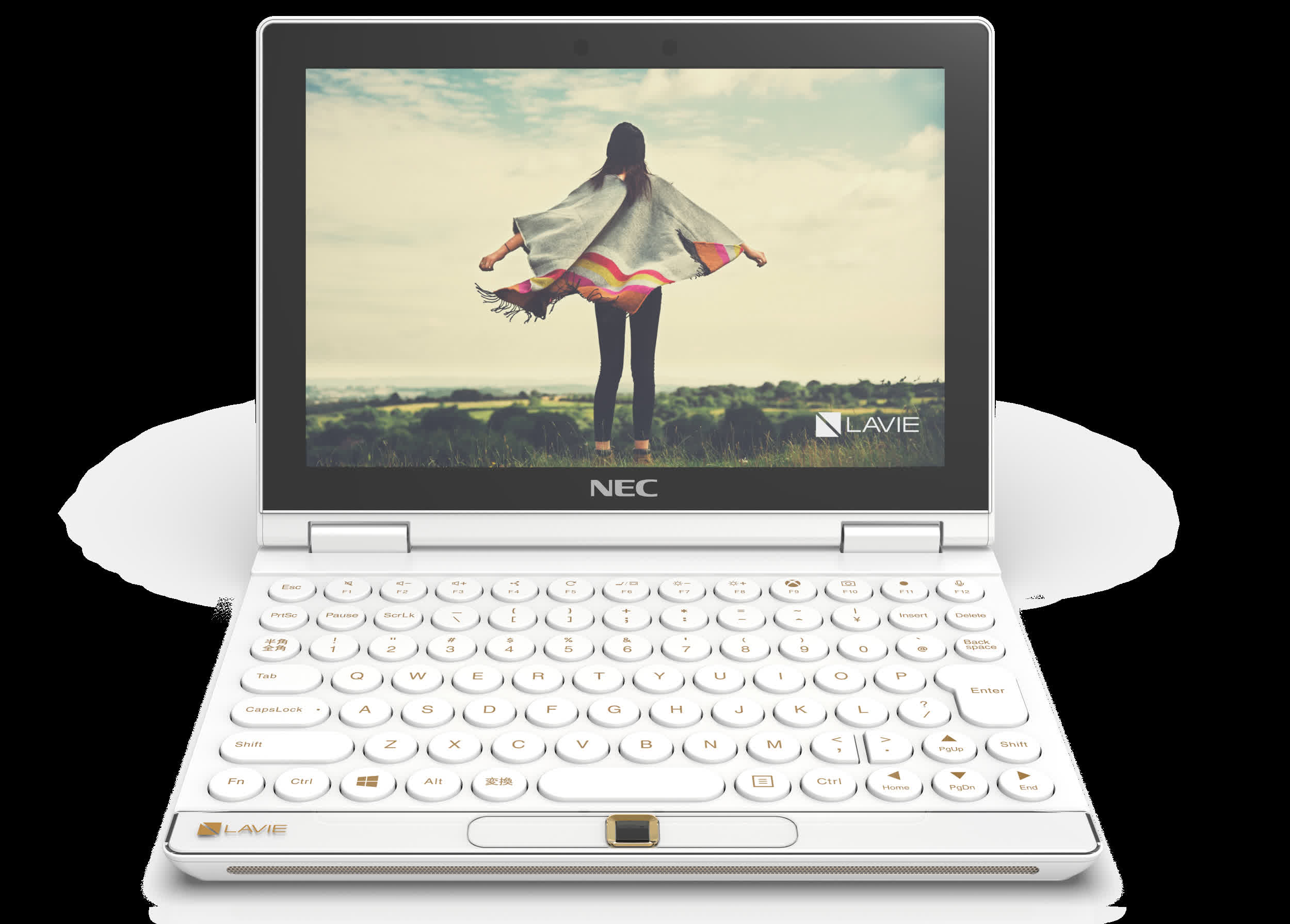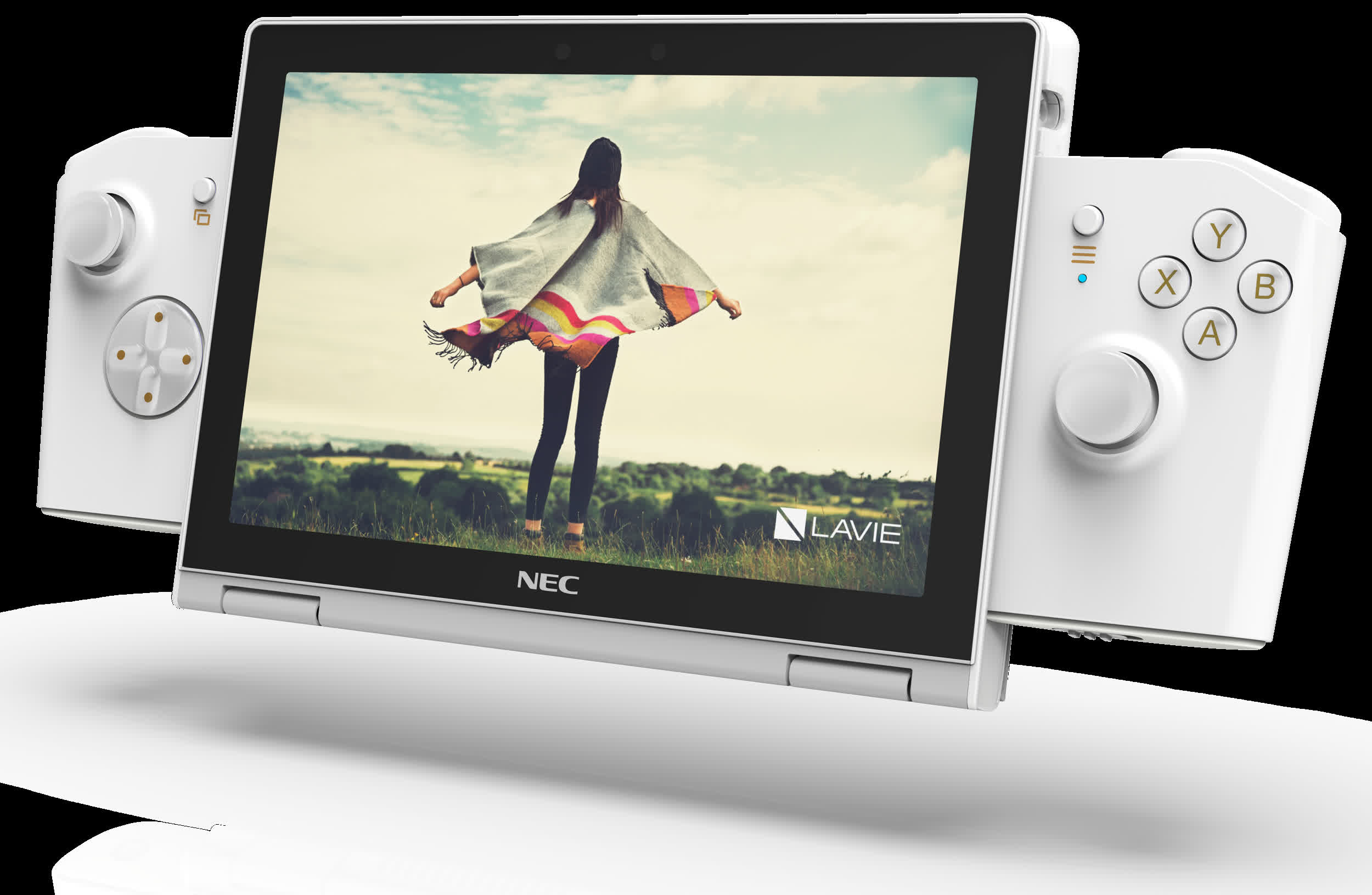The big picture: Remember netbooks, the ultra-portable laptop alternatives that were all the rage roughly a decade ago? They could be making a comeback if Lenovo and NEC have their way. The LaVie Mini is a concept convertible PC featuring an 8-inch (1,920 x 1,200 resolution) touchscreen display. Unlike the netbooks of yesteryear, however, the LaVie Mini isn’t light on power.

Should it materialize, it’ll be offered with up to an 11th Gen Intel Core i7 mobile processor, Intel Iris Xe graphics, 16GB of LPDDR4 memory and up to a 256GB SSD – all in a package that weighs just 1.28 pounds.
Other amenities include a backlit keyboard, Wi-Fi 6 and a 26WHr battery. But it’s the optional gaming controller that really sets the LaVie Mini apart.

With it, you’ll be able to transform the convertible into a Nintendo Switch / Razer Edge style portable console. And with the optional HDMI-connected dock, it should be a breeze to connect the system to your television and play on the big screen.
As mentioned, the LaVie Mini is little more than a prototype being shown off at CES, likely to gauge industry and consumer interest. As such, there aren’t any pricing or availability details attached to the modern netbook at this time.
Are Lenovo and NEC on to something here or is this little more than a glorified gaming tablet that should remain in the prototype phase? Let us know your thoughts in the comments section below.
https://www.techspot.com/news/88202-lenovo-nec-take-aim-nintendo-switch-lavie-mini.html